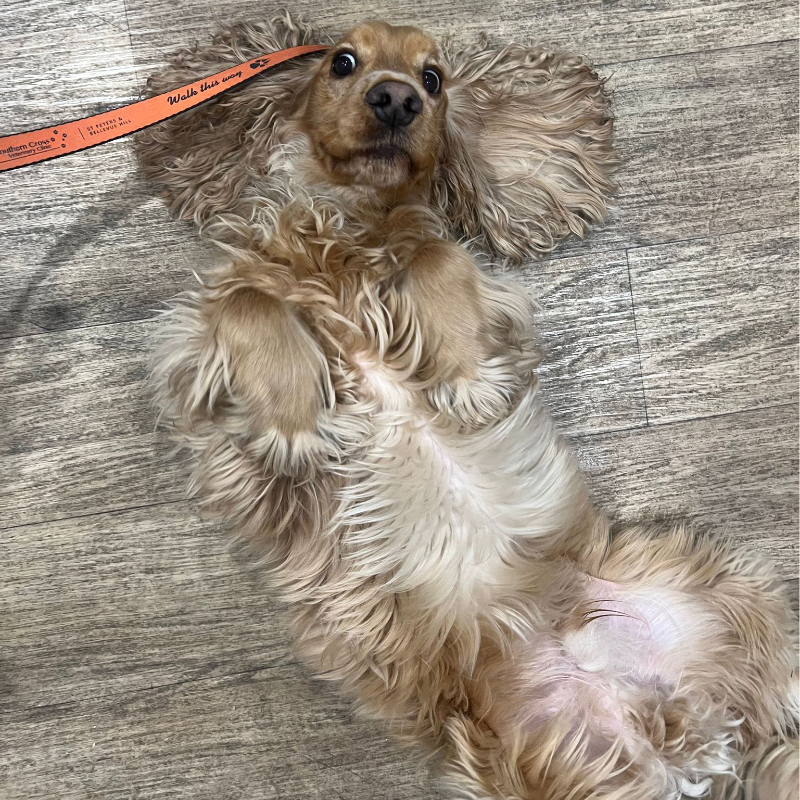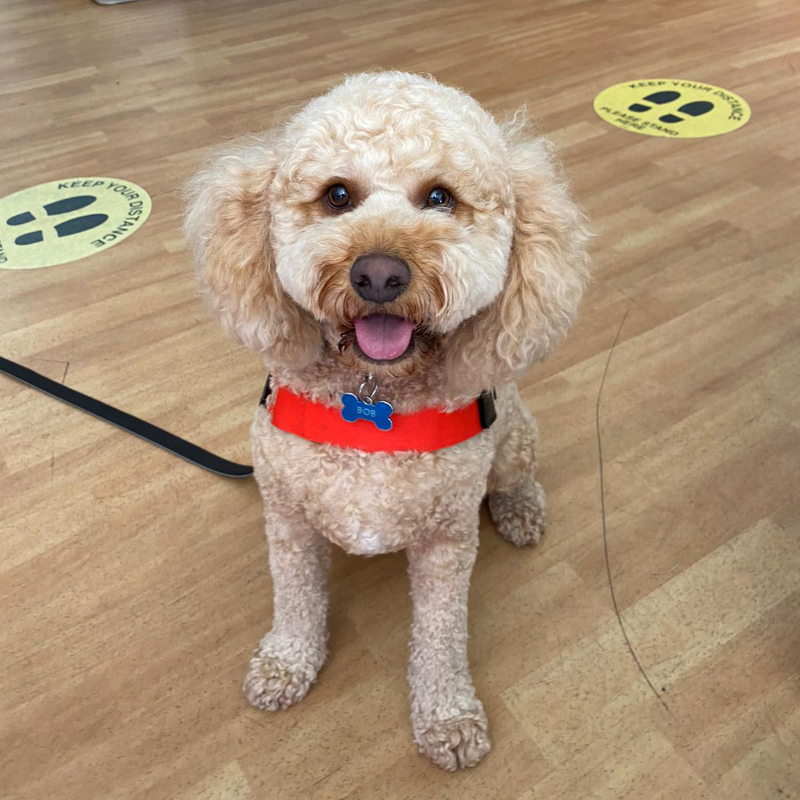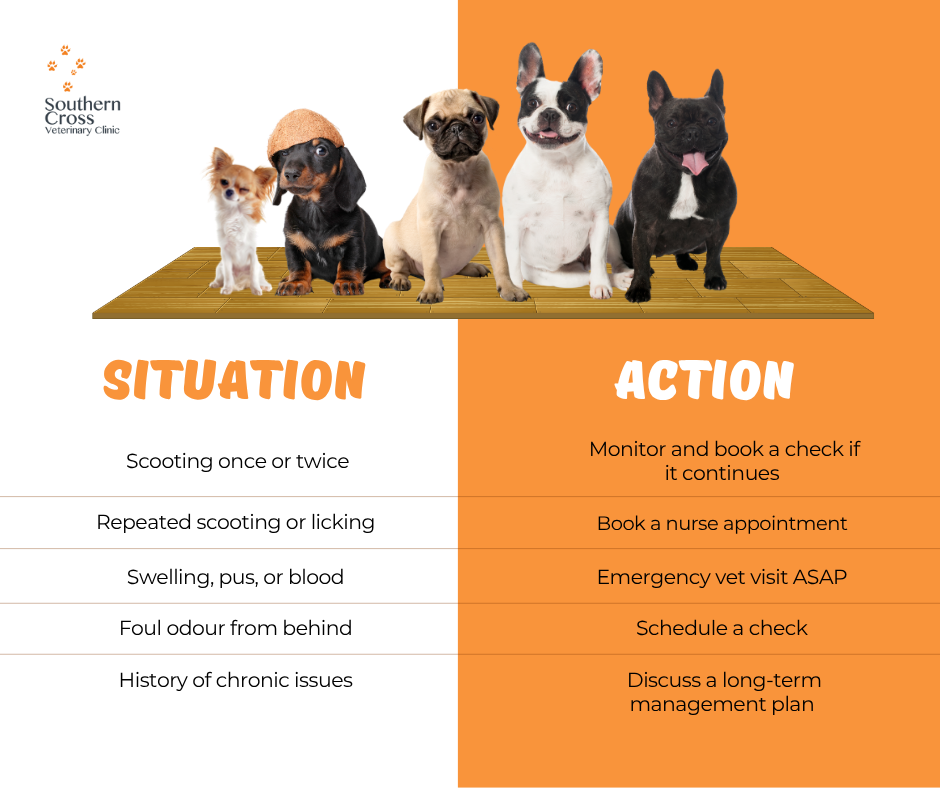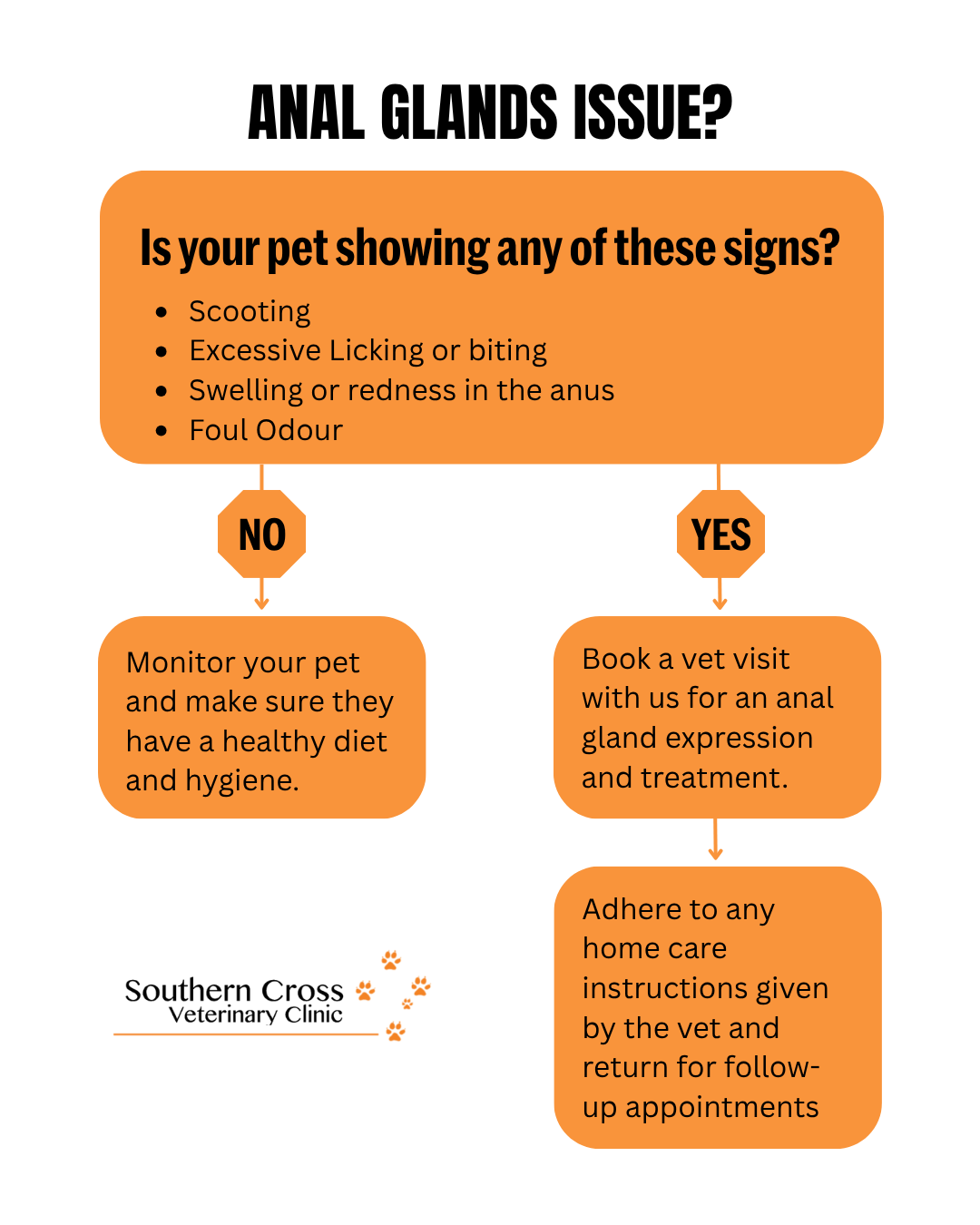Anal Gland Problems in
Dogs and Cats
Why they matter, how to spot issues, and what to do next
Anal glands (also called anal sacs) are two small, scent-producing structures located just inside your pet’s rectum at the 4 o’clock and 8 o’clock positions. They contain a pungent fluid used by dogs and cats for marking territory and communicating with others.
Under normal circumstances, these glands naturally empty during defecation. But in many pets—especially small dogs—they can become overfilled, impacted, or infected, leading to discomfort and even painful abscesses.


Common Signs of Anal Gland Problems
Your pet can’t tell you what’s wrong, but these signs are clear red flags:
- Scooting or dragging their bottom across the ground
- Excessive licking or biting around the anus or tail
- A fishy or foul smell near the tail
- Reluctance to sit, or sitting down suddenly
- Swelling or redness near the anus
- Licking paws (a surprising but common sign of discomfort)
Emergency alert: If you notice pus, bleeding, or a sudden swelling near your pet’s anus, call us immediately. These could be signs of an anal gland abscess which needs urgent veterinary care.
What Causes Anal Gland Issues?
Several factors can contribute:
- Dietary issues – Soft stools don’t create enough pressure to empty the glands
- Breed predisposition – Small breeds like Chihuahuas, Pugs, Toy Poodles, and even cats with narrow ducts are more prone
- Obesity – Extra weight can interfere with normal emptying
- Allergies – Food or environmental allergies may lead to inflammation
- Anatomical structure – Some pets are simply born with poorly positioned or narrow ducts
If your dog is experiencing any of these symptoms...
Diagnosis & Treatment at Southern Cross Vet
At Southern Cross Vet, our experienced team of vets and nurses can quickly assess your pet and determine whether they need:
- A simple expression – Glands are gently emptied, often with immediate relief.
- Veterinary treatment – If the glands are infected, we may prescribe antibiotics, anti-inflammatories, or pain relief.
- Surgical intervention – In rare or chronic cases, surgical removal may be considered.
We also provide FREE anal gland checks by trained nurses — a great way to catch problems early. Head to https://scvc.as.me/analglands to book an appointment with us now!
Can I Express My Pet’s Glands at Home?
While some owners choose to learn how to express anal glands themselves, we recommend caution. If done incorrectly, it can cause:
- Pain or injury to your pet
- Incomplete emptying
- Increased risk of infection
It’s a smelly job best left to the pros — but if you'd like to learn, our team can show you how safely.
Prevention Tips
Want to avoid frequent visits for anal glands? Here's what can help:
- High-fibre diet to produce firm stools
- Regular exercise to maintain healthy weight
- Routine checks, especially for predisposed breeds
- Allergy management if your pet is prone to sensitivities
Ask us about the right diet or supplements that can help keep those glands working smoothly.
Breed-Specific Info
Some dogs and cats are more prone to anal gland issues, including:
- Small-breed dogs: Poodles, Chihuahuas, Shih Tzus, and Dachshunds
- Flat-faced (brachycephalic) breeds: Pugs and French Bulldogs
- Overweight cats and those with food allergies
If you own a predisposed breed, schedule regular checks with our team to stay ahead of problems.
When to See the Vet Vs When It Can Wait

Book a FREE Anal Gland Check
Our nurses are trained to spot early signs and safely express glands. If your pet has more complex needs, they’ll refer you to one of our vets for a comprehensive plan.

